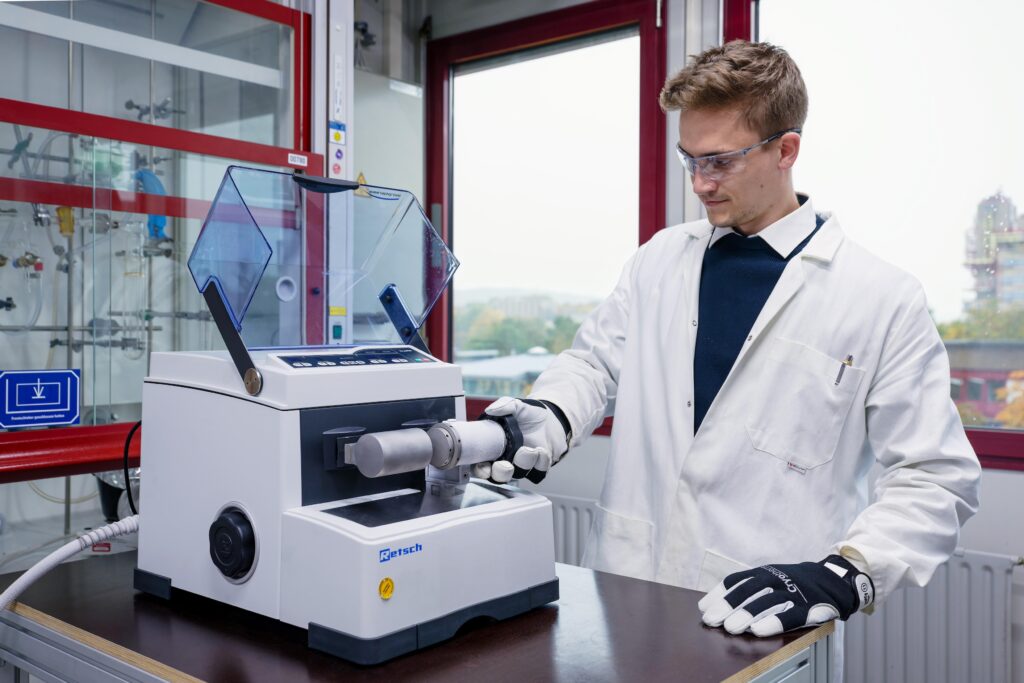Catalytic recycling processes are revolutionizing the way we handle plastics. They offer the possibility of selectively breaking down different plastics and either finding optimal methods for simpler recycling processes or sensibly integrating new materials into production streams.
The role of catalysts is crucial here! They enable the targeted and efficient conversion of plastics and other materials into high-quality chemical building blocks. Within the catalaix approach, both the development of effective catalysts and the design of the corresponding processes are central to success.
A catalyst accelerates chemical reactions by lowering the activation energy without itself being consumed. A well-known example is our body’s own enzymes: The enzyme amylase in saliva acts as a catalyst when we chew bread, converting starch into simple sugars. Chopping the bread increases its surface area, making enzymatic digestion more efficient.
